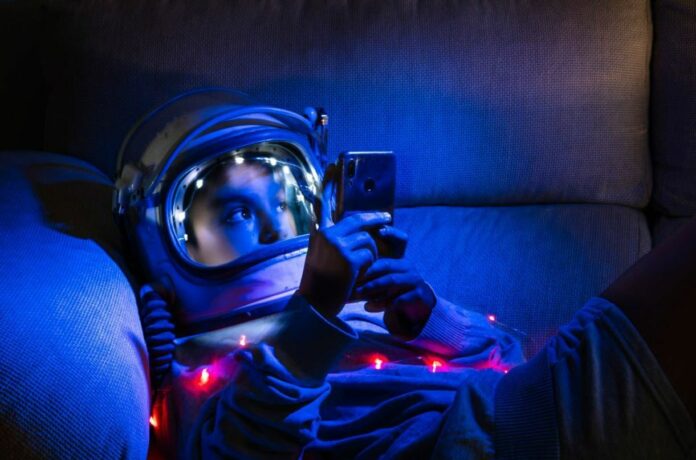Humans living in advanced cultures spend the majority of their waking hours surrounded by blue light from LED lighting.
The blue light that gadgets like smartphones give off has been linked to a number of health problems, like obesity and mental health issues.
Now, premature aging may be added to that list. “Excessive exposure to blue light from everyday devices — such as TVs, laptops, and phones — may have detrimental effects on a wide range of cells in our body,” said Dr. Jadwiga Giebultowicz, an integrative biologist at Oregon State University. She went on to say that affected cells range from sensory neurons all the way up to skin and fat cells.
According to Dr. Giebultowicz, this is the first study “to show that the levels of specific metabolites — chemicals that are essential for cells to function correctly — are altered in fruit flies exposed to blue light.”
The results of the study indicate that limiting exposure to excessive blue light might be a successful anti-aging tactic.
Dr. Giebultowicz and her colleagues have previously demonstrated that fruit flies exposed to light had their stress-protective genes “turned on.”
Those who are kept in the dark, however, seem to live longer.
In this study, Dr. Giebultowicz and team “compared the levels of metabolites in flies exposed to blue light” for two weeks to those kept in full darkness to understand why high-energy blue light is responsible for accelerating ageing in fruit flies.
The researchers discovered that blue light exposure altered the amounts of metabolites detected in the fruit fly heads’ cells.
In particular, they discovered that glutamate levels were decreased but succinate levels were up.
According to Dr. Giebultowicz, sucinate is necessary for the production of the fuel needed for each cell’s growth and function.
“High levels of succinate after exposure to blue light can be compared to gas being in the pump but not getting into the car.”
Another unsettling finding was that chemicals necessary for neuronal connection, such glutamate, are at a lower level following exposure to blue light.
The team claims that these modifications show that following exposure to blue light, cells do not function at their peak levels, which can accelerate the aging process.
“LEDs have become the main illumination in display screens such as phones, desktops and TVs, as well as ambient lighting,” added Dr. Giebultowicz.
Humans living in advanced cultures spend the majority of their waking hours surrounded by blue light from LED lighting.
Blue light may have harmful effects on people since the signaling substances in fly and human cells are the same.
After finishing their initial investigation, the researchers are now examining if the same phenomena has an impact on human cells in actual environments.
“We used a fairly strong blue light on the flies,” explained Dr. Giebultowicz.
“Humans are exposed to less intense light, so cellular damage may be less dramatic.
“The results from this study suggest that future research involving human cells is needed to establish the extent to which human cells may show similar changes in metabolites involved in energy production in response to excessive exposure to blue light.”
Source: 10.3389/fragi.2022.983373
Image Credit: Getty
You were reading: How Bad Is Blue Light? New Study Reveals A Terrifying Effect
